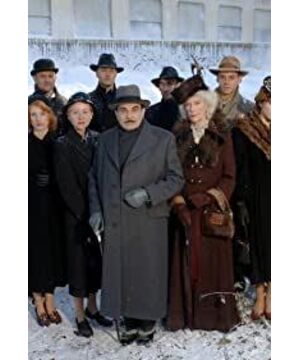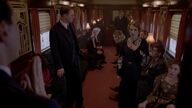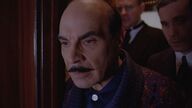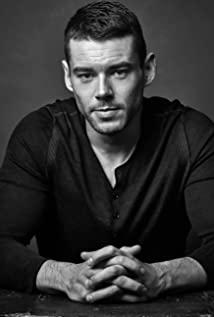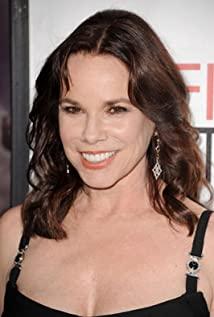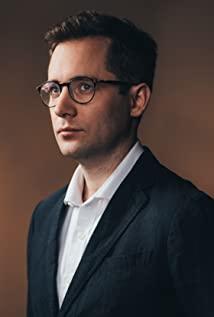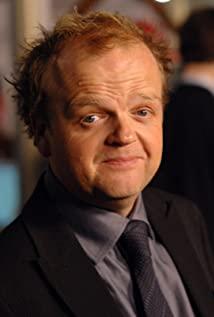I've watched a lot of movies, but it's very rare to really write down my impressions with confidence. Please spray if you don't like it.
I can't describe the plot and various details. I can't remember a single name of the ten or so characters in the car. It seems that there are many people who want to talk and hit the keyboard and get stuck.
Scene YY1: When recommending this film to a friend, you can ask him to guess the murderer, and then when he guesses A, B, C...with confidence, the answer can be either wrong or right.
When the truth is revealed about this deliberate and shocking layout and the old detective's vigilance, it is undoubtedly surprising. When the old detective insists on his justice, the murderers who have been blocked from the door of justice think that their own Retaliation can be justifiable and worth moving. I want to ask, if God is present at this moment, how will it be judged. A heinous murderer, a group of people from all walks of life who have suffered from their crimes, and the old detective who is in the middle of the gossip circle. "The innocent cast the first stone", and who would be immaculate, including the Christian woman who had been religious for more than five years. Don't judge, people are people after all, don't judge people, let alone the judgment of life and death, God has his own will, and poirot is the judge sent by God at that moment. Here's what I came up with.
Scene YY2 I think if so many people were brought into the courtroom, the scene would undoubtedly be a moving storm. And what I want to discuss is, should the confession of the deceased be forgiven? In the film, the female Christian questioned that Catholic confession and forgiveness are false, and the deceased may have felt that death was coming, or she may have felt a little remorse for her past actions and prayed for a peaceful sleep. His confession Should he be forgiven, should he be forgiven? I think of the Korean movie "Miryang", the widow who lost her husband returned to her husband's hometown to live, but her only son was brutally killed. This is undoubtedly the most painful pain in the world, but she gradually recovered by finding the Christian faith When the prison decided to forgive the murderer, it was found that the murderer also forgave himself through God in prison, but this made this woman unacceptable, and the psychological defense line that had been struggling for a long time completely collapsed. This so-called forgiveness can be said to be not true in the heart. forgive. Just like Jesus said in the Bible, "When someone hits you on the left cheek, you should put the right cheek on it." You try to simulate this situation, which is actually a more intelligent and powerful counterattack. My logic may be a little off. It is not that simple, which has been related to Chinese Confucianism for thousands of years.
In addition, I want to say that this Orient Express, the luxury train "African Pride" I took in "30,000 Miles in Africa" that I recently watched, is also a long journey, with all kinds of people and unique scenery. , People who love to travel are worth yearning for.
In the whole movie, I even guessed right. At the end, poirot lit a cigarette and took a cross and beaded to think about it.
If God is present, no, God is present, and in the end poirot's choice I think is God's will.
View more about Murder on the Orient Express reviews


